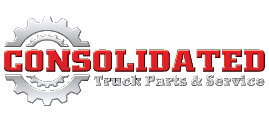It always seems that the heavy truck industry is on the heels of the automotive industry. Whether it is technology, sales methodologies, or processes the auto industry typically did it first and in regards to the Right to Repair issue it is no different. On January 22nd four automotive organizations — Alliance of Automobile Manufacturers (Alliance), the Association of Global Automakers (Global), the Automotive Aftermarket Industry Association (AAIA), and the Coalition for Automotive Repair Equality (CARE) — released a joint statement announcing the light-duty market has accepted a Right to Repair national agreement.
This agreement takes elements of the Massachusetts 2013 Right to Repair ruling one step further to cover the entire United States. “We are excited that consumers and independent repair facilities around the nation will have the same access to the information, tools and software needed to service late model computer controlled vehicles as is required under the Massachusetts right to repair statute,” says Kathleen Schmatz, president and CEO of the AAIA. “We believe that the resulting competitive repair market is a win-win for car companies, the independent repair industry and most importantly consumers.”
For those of us just hearing about this discussion, it is a very important topic to be aware of for anyone who owns a vehicle or truck. This agreement allows aftermarket repair shops (non-dealerships) to have access to the diagnostic information, tools, and software needed to service and repair late modeled computer controlled vehicles. Consumers should have access to quality, price competitive repairs and have the right to choose where theyBUY their parts and have their vehicles serviced. This ruling gives consumers that ability.
Though the current Massachusetts ruling does include heavy duty vehicles, it doesn’t start till vehicles manufactured in 2018 and only trucks “that are not heavy-duty vehicles built to custom specifications sold in the commonwealth for commercial purposes”. This is not many trucks and is only in Massachusetts, but it is a start. The important part is that we continue the dialogue and get the right manufacturers and aftermarket representatives together to further this cause. We have a long road ahead, but our clients should be assured that the aftermarket Heavy Truck industry wont rest until our clients are no longer held captive to the OEM’s for diagnostic help with the latest computer controlled vehicles.
